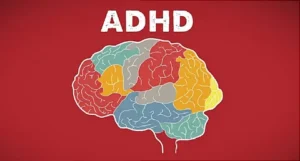Many youngsters suffer from Attention Deficit Hyperactivity Disorder (ADHD), which has an impact on their ability to learn, connect with others, and perceive their environment. Talking to your child about ADHD as a parent or caregiver can be delicate yet important. Here’s a thorough how-to on handling this subject with compassion, empathy, and support.
Comprehending ADHD Collectively
Educate Yourself First: It’s important to have a thorough understanding of what ADHD Disorder is before discussing it with your child. This covers the signs and symptoms, the ways it impacts behavior and education, and the management techniques.
Select the Appropriate Time and Location: Look for a peaceful, cozy setting where you and your child may have uninterrupted conversations. Make sure it’s a moment when you’re both at ease and willing to talk.
Keep It Simple and Age-Right: Adapt your conversation to your child’s developmental stage and age. Don’t overwhelm them with technical terms; instead, speak in a manner that they can comprehend. Emphasize on describing how they might find some things more difficult because of their ADHD.
Creating an Upbeat Story
Highlight qualities: Talk about how specific qualities like creativity, hyperfocus on enjoyable work, and unconventional thinking can also be linked to ADHD. Assist your youngster in realizing that having ADHD comes with advantages as well as problems.
Promote Openness: Teach your kids that it’s acceptable to discuss their emotions and experiences with ADHD. Encourage them to ask questions and let them know they can come to you with any worries or problems.
Normalize Treatment: Present your child’s ADHD treatment in a favorable way if they are receiving it. Reiterate that therapies and medications are instruments to support their success and increase their level of comfort in many contexts.
Realistic Techniques for Everyday Living
Establish Structure and Routine: Children suffering from ADHD can gain from dependable schedules and well-defined expectations. Establish schedules for chores, homework, and leisure activities jointly.
Make Use of Visual Aids: Your child can maintain organization and time management skills by using visual timetables, checklists, and reminders. To encourage independence, integrate these tools into their everyday activities.
Teach Coping Skills: Assist your child in learning how to control their impulsivity, sharpen their attention, and deal with frustration. Methods like mindfulness, deep breathing exercises, and taking pauses can be helpful.
Boosting Your Child’s Mental and Social Development
Promote Healthy Relationships: Talk about how friendships and social interactions may be impacted by ADHD. Instruct your child in empathy and problem-solving techniques to make social situations easier for them to handle.
Encourage Self-Advocacy: Help your kids learn how to speak up for themselves in social and academic contexts. Encourage children to discuss how ADHD affects them and what kind of support they need in conversations with classmates, coaches, and teachers. Promote Healthy Relationships: Talk about how friendships and social interactions may be impacted by ADHD. Instruct your child in empathy and problem-solving techniques to make social situations easier for them to handle.
Honor Progress and Effort: Congratulate your child on all of their accomplishments, no matter how tiny. Positive reinforcement encourages self-worth and keeps up the effort in dealing with ADHD difficulties. Promote Healthy Relationships: Talk about how friendships and social interactions may be impacted by ADHD. Instruct your child in empathy and problem-solving techniques to make social situations easier for them to handle.
Working Together with Professionals and Schools
Collaborate with Teachers: To foster a positive learning environment for your kid, maintain open lines of communication with teachers and other school personnel. Talk about accommodations that might be helpful in the classroom and share tactics that you find effective at home.
Speak with Mental Health Professionals: For thorough treatment techniques, seek advice from pediatricians, psychologists, or ADHD specialists. They can offer customized guidance and assistance according to the unique requirements of your child.
Together, Overcoming Obstacles
Managing Setbacks: Recognize that obstacles and setbacks are a part of managing ADHD. In order to help your child handle challenging situations and learn from them, foster resilience and problem-solving abilities in them.
Seek Assistance: Get involved in support groups or make connections with other families and parents of ADHD-affected youngsters. Emotional support and insightful information can be obtained by sharing experiences and resources.
Stay Positive: Throughout your child’s journey with ADHD, keep your optimism and support intact. Your support and empathy mean a great deal to their self-esteem and general well-being. Seek Assistance: Get involved in support groups or make connections with other families and parents of ADHD-affected youngsters. Emotional support and insightful information can be obtained by sharing experiences and resources.
In summary
As your child develops and grows, so does the process of talking to them about their ADHD. You may help your child overcome obstacles with confidence and resiliency by encouraging open communication, highlighting strengths, and offering helpful assistance. Keep in mind that each child with ADHD is different, and that your acceptance and assistance are essential to their development and well-being.
By empowering your child to embrace their strengths and conquer obstacles related to ADHD, this strategy not only improves your relationship with them but also helps them develop a positive attitude on their future and skills.
